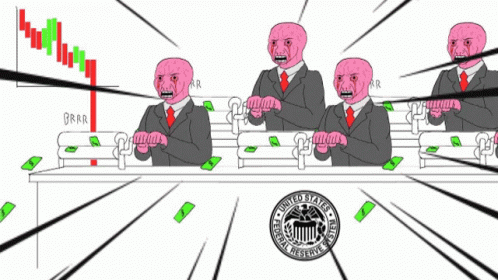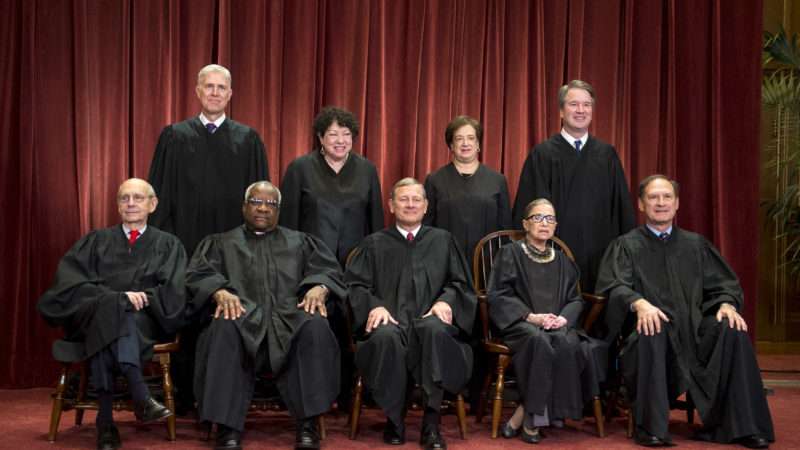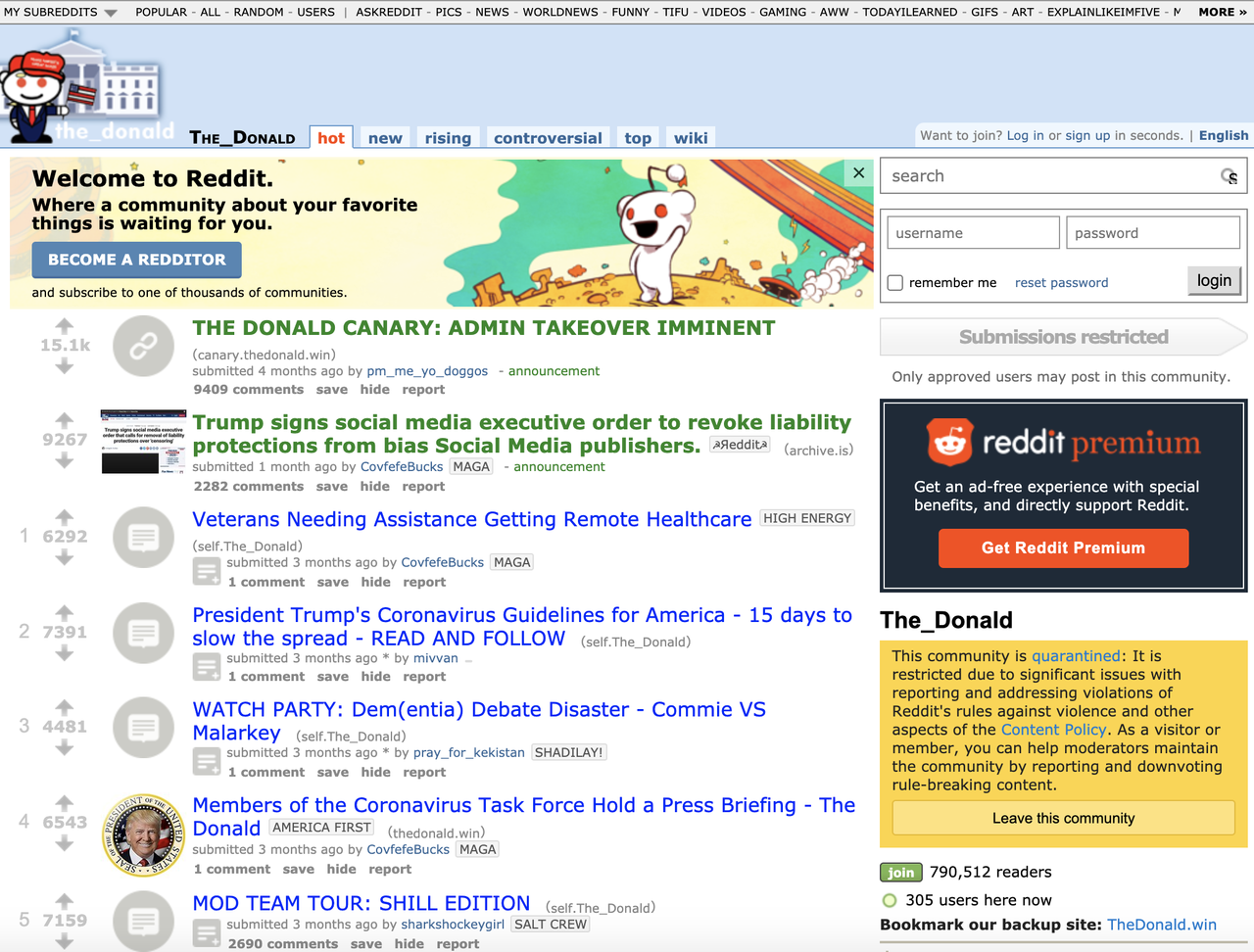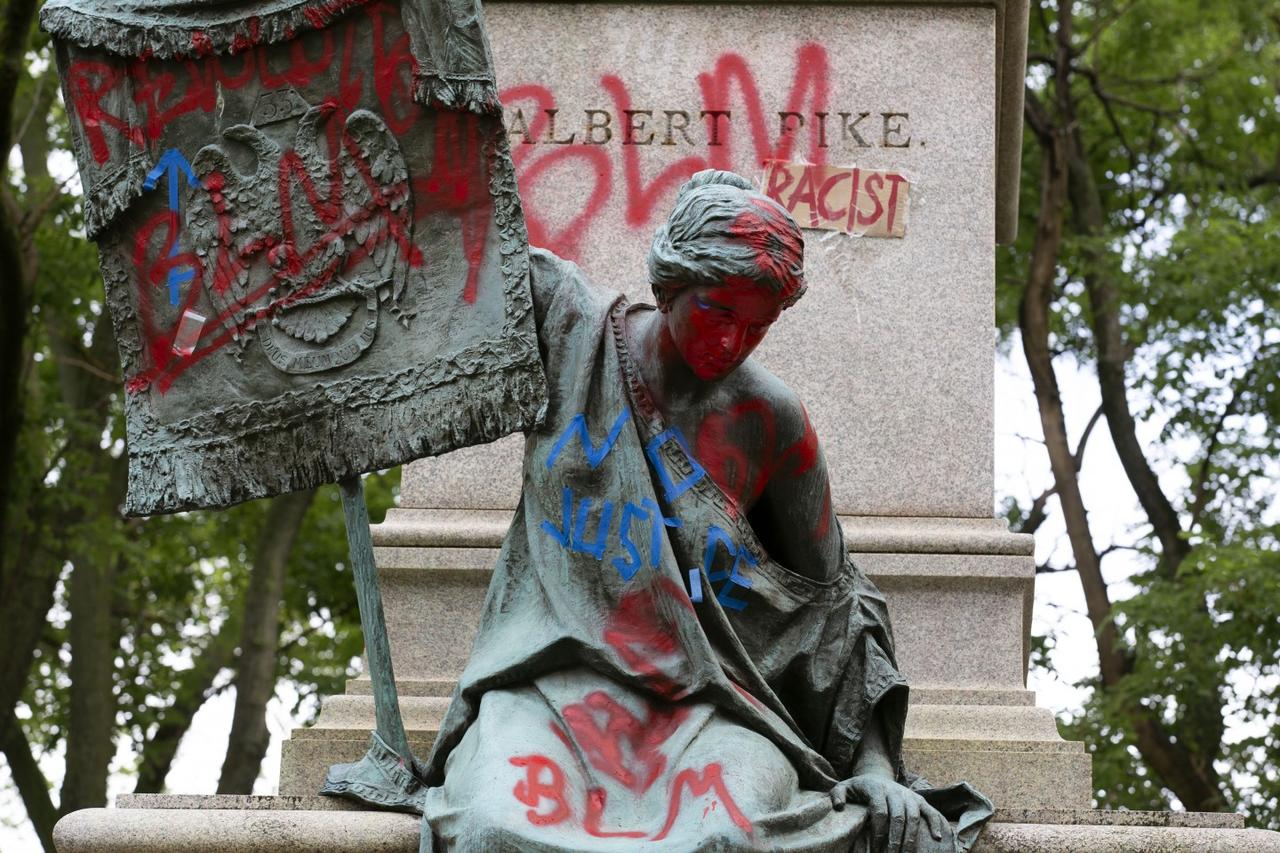Hong Kong is a bastion of free expression, art, culture, and commerce. While mainland China was being ravaged by Mao’s Cultural Revolution in the 1960s, Hong Kong was still a British colony and home to a radical experiment in free market capitalism. By the time partial control was handed over to the Chinese government, creating the infamous one-country/two-systems model, per capita wealth here had eclipsed that of even the U.K.
That experiment may be coming to an abrupt end. China’s People’s Congress adopted a national security law that would allow the central government, which is controlled by the Chinese Communist Party, to clamp down on civil liberties, destroying the political freedom that made this semi-autonomous city a desirable place to live.
The U.S. government has threatened to revoke Hong Kong’s special trading partner status and to levy targeted sanctions to oppose Beijing’s actions. But there’s another foreign policy lever the government could pull that’s nonviolent, humane, and beneficial to U.S. citizens: Make it easier for Hongkongers to leave by welcoming them into America.
“Not only would it be good for them, but it would also be good for the West,” says Ilya Somin, a law professor at George Mason University, a contributor to the Volokh Conspiracy legal blog, and the author of a new book, Free to Move: Foot Voting, Migration, and Political Freedom. He argues that the U.S. should have an open-door policy to Hongkongers, and eventually to mainland Chinese dissidents as well. The United Kingdom has already announced plans to extend visas for up to 3 million fleeing Hongkongers.
“They would make important contributions to our economies, just as previous Chinese and Hong Kong immigrants and others from that part of the world have done,” says Somin. “Second, this would be a very important victory in the war of ideas that is arising between the U.S. and the West and the one hand and the authoritarian government of China on the other.”
Those who could benefit most from such an escape hatch are critics of the Chinese Communist Party, such as Joshua Wong, secretary-general of the pro-democracy political party Demosisto.
“I would summarize this national security law as a speech crime,” says Wong, who worries that calling for the resignation of Chinese President Xi Jinping would subject the speaker to arrest, prosecution, and imprisonment on the Chinese mainland.
Wong has already had a taste of what it’s like to lose your civil liberties. He was arrested in his home in 2019 in an effort to undermine a large protest planned for the following day. And he was barred from running for office because of his political party’s stated belief that Hongkongers should be allowed to determine the city’s sovereignty by democratic vote.
“After the national security law [passed], I’m [no longer] arrested by Hong Kong police…but by Beijing-appointed agent of the secret police….I might be imprisoned in Beijing,” says Wong. “So I think that’s a nightmare for activists in Hong Kong and also journalists who fight for freedom.”
What if, before that happens, Wong and other activists had the option to get out?
Even immigration hawks within the Trump administration, Somin argues, should appreciate that granting automatic entry to Hongkongers would be a politically savvy move against the Chinese state.
Horrified by the difficulties faced by displaced Jews during and after World War II, President Harry Truman launched America’s first refugee program, starting with a 1945 executive order followed by the Displaced Persons Act of 1948.
America granted similar status to refugees from the Soviet Union, starting in 1953, and communist Cuba, starting in 1966. Somin’s own parents left the USSR for America in 1979, when he was five.
“The U.S. government at the time recognized that part of the reason to do this was to help oppressed people for its own sake, but they also recognized that it was an important moral victory for the U.S. in the Cold War struggle against the Soviet Union,” says Somin.
Somin’s Jewish family was considered a persecuted ethnic minority, but he believes all Hongkongers faced with the loss of their freedoms should be given the opportunity to exit.
Another Hongkonger at risk is Sixtus Baggio Leung, whom voters elected in 2016 to the Hong Kong Legislative Council. He lost his position after showing up at his swearing-in ceremony draped in a banner that read, “Hong Kong is not a part of China.”
In 2018, the government sentenced Leung to four weeks in prison after convicting him of illegally trying to re-enter the legislature to re-take his oaths.
China’s new law unambiguously criminalizes Leung’s pro-independence views.
“If Hong Kong [remains] under the rule of [the Chinese Communist Party], we can never achieve universal suffrage, separation of powers, freedom of speech…all kinds of freedom,” says Leung.
Somin wants the U.S. to go farther than the U.K. by extending to Hongkongers, and eventually all Chinese dissidents, an offer of permanent residency, but he acknowledges it’s an uphill battle with an anti-immigration administration in power.
“There really is no [immigration] line right now. Trump has virtually shut down letting in virtually any refugees of any kind,” says Somin.
The Trump administration has been dismantling the refugee system, first by capping the number of people allowed in from Syria and other Middle Eastern countries, and then with his “Remain in Mexico” policy, which forces those applying for refugee status to wait outside the country. Most recently, he has suspended the issuance of high-skilled H1B visas.
Politico reports that a component of the GOP’s 2020 election strategy is to make an aggressive stance towards China a central issue and portray their opponents as “soft on China.” Somin says this presents an opportunity.
“If they’re real China hawks, then they should welcome this opportunity to both get some of China’s most talented people to come here, as opposed to stay in China, where they will be under the control of that government—and, at the same time, win an important moral and political victory,” says Somin.
Wong, however, has no immediate plans to leave Hong Kong. He says he’s hanging around to resist the Communist Party’s takeover of his city for as long as he can.
“I have no hope towards the government, but I still have hope [for] the people and the global community to keep our momentum and let Beijing realize that we will never stop our fight,” says Wong.
Produced by Zach Weissmueller. Hong Kong footage by Edwin Lee. Graphics by Isaac Reese.
Music credits: “Corals Under the Sun,” by Sivan Talmor; “Spongy Hammer,” by Muted; “40 Years Ago,” by Muted. Licensed through Artlist.
Photo credits: “Boris Johnson pointing,” by Jack Hill/The Times/ZUMA Press/Newscom; “Trump at the podium,” by Polaris/Newscom; “Trump at the border wall,” Everett Collection/Newscom; “Joshua Wong at the podium,” by STEPHEN SHAVER/Newscom; “Joshua Wong mural,” by Thierry Ehrmann; “Trump and Xi handshake,” by Kyodo/Newscom; “Xi smiles at Trump,” by Kyodo/Newscom; “Chinese police officers,” Imagine China/Newscom; “Xi at the podium,” by CHINE NOUVELLE/SIPA/Newscom; “Joshua Wong speaking to press,” by Studio Incendo; “Hong Kong Protests,” by Studio Incendo.

from Latest – Reason.com https://ift.tt/2ZiZT7j
via IFTTT







